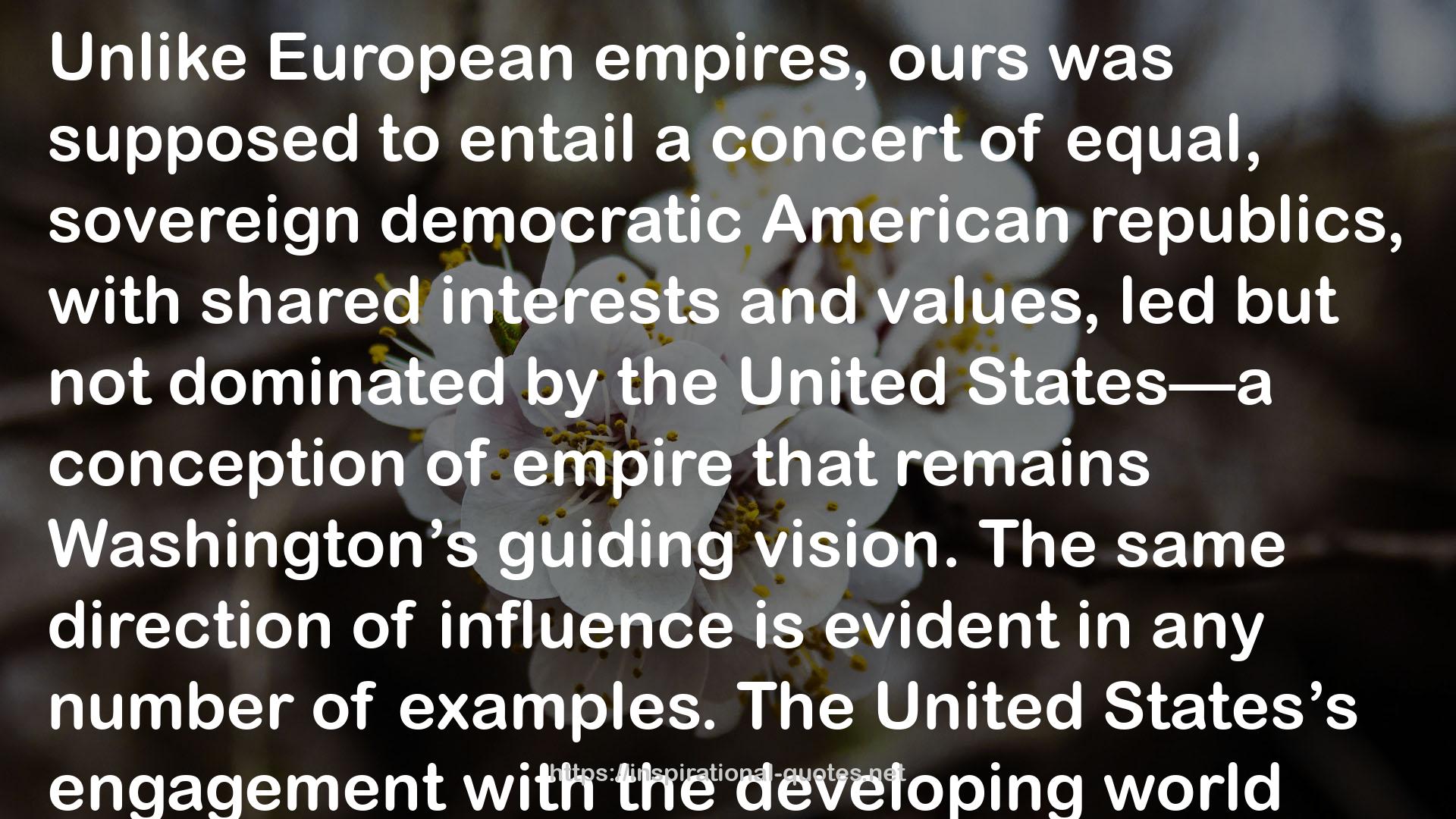" Unlike European empires, ours was supposed to entail a concert of equal, sovereign democratic American republics, with shared interests and values, led but not dominated by the United States—a conception of empire that remains Washington’s guiding vision. The same direction of influence is evident in any number of examples. The United States’s engagement with the developing world after World War II, for instance, is often viewed as an extension of its postwar policies in Europe and Japan, yet that view has it exactly backwards. Washington’s first attempts, in fact, to restructure another country’s economy took place in the developing world—in Mexico in the years after the American Civil War and in Cuba following the Spanish-American War. “We should do for Europe on a large scale,” remarked the U.S. ambassador to England in 1914, “essentially what we did for Cuba on a small scale and thereby usher in a new era of human history. "
― Greg Grandin , Empire's Workshop: Latin America, the United States, and the Rise of the New Imperialism
